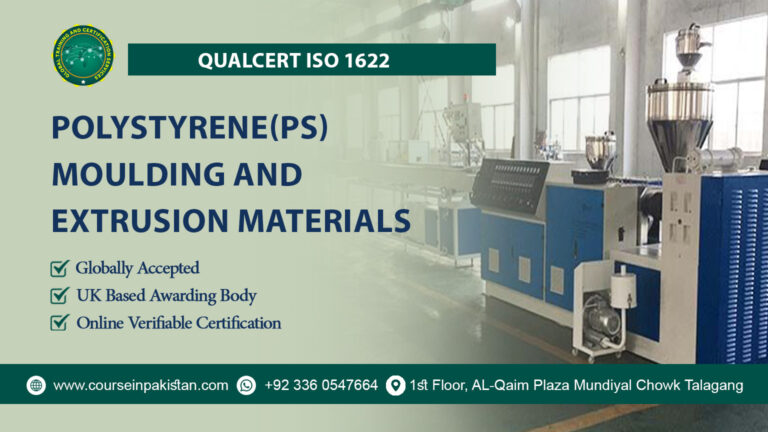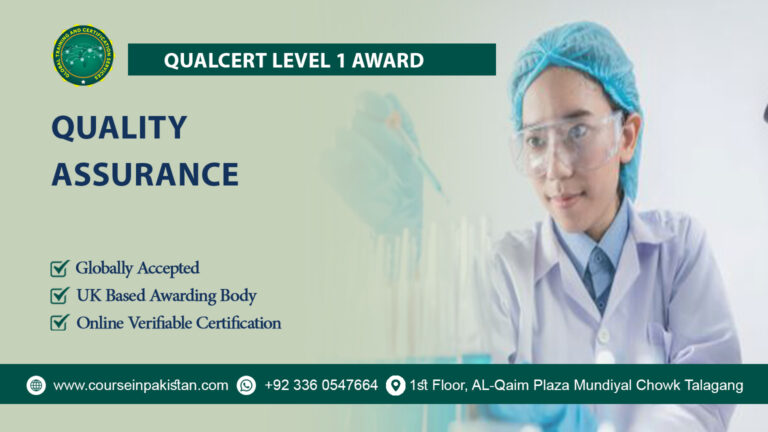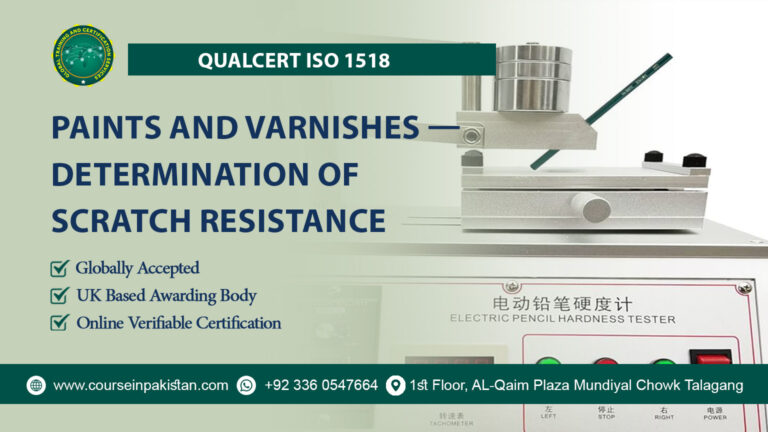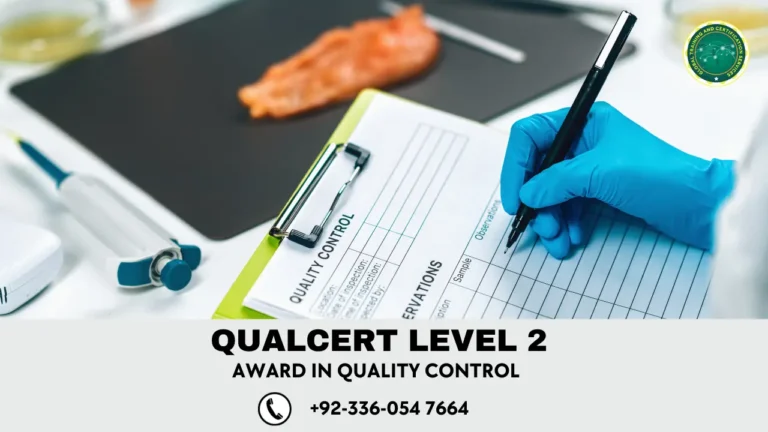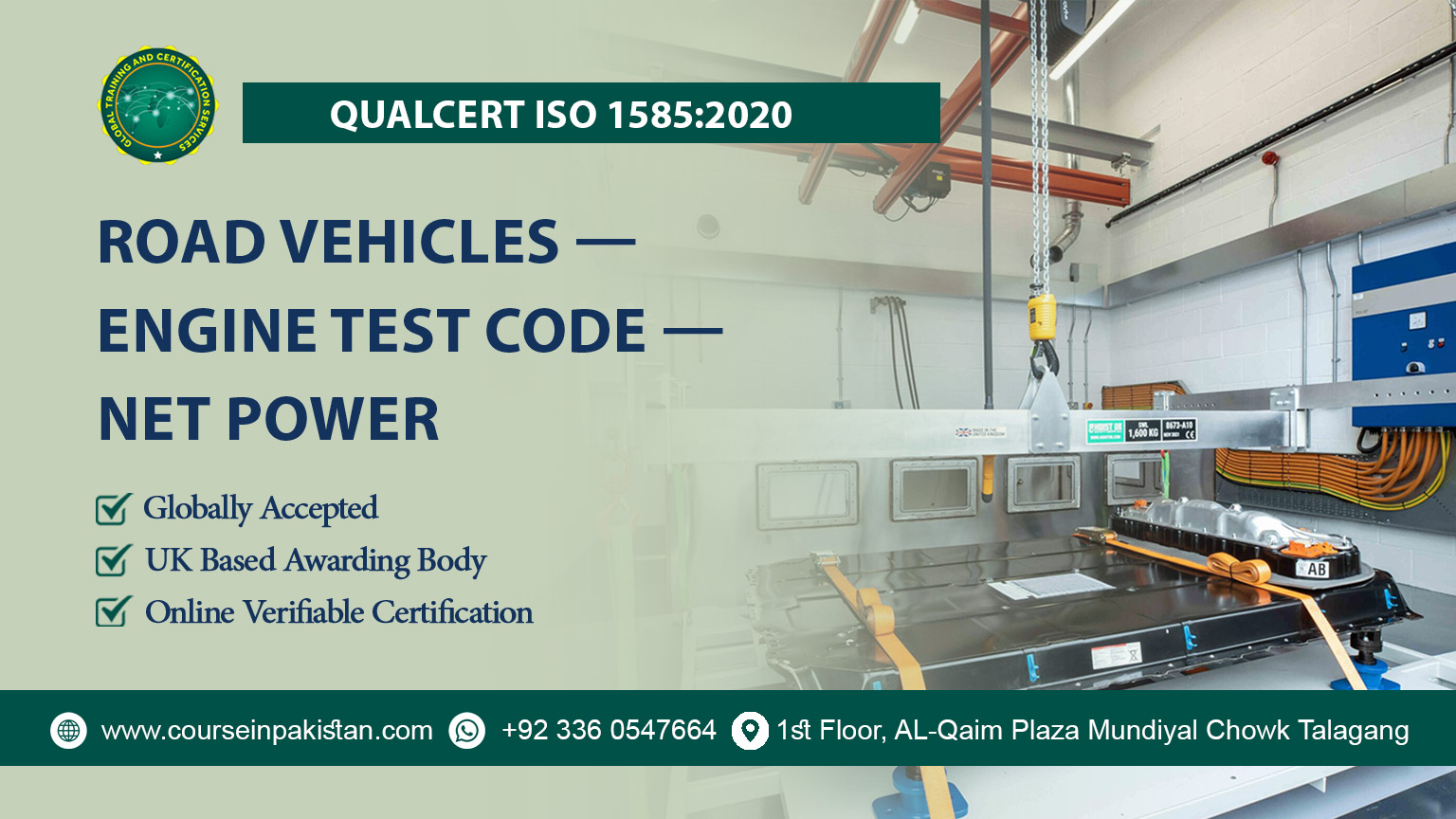
ISO 1585:2020 Road Vehicles — Engine Test Code — Net Power
The QualCert ISO 1585:2020 Road Vehicles — Engine Test Code — Net Power course offers professionals an in-depth understanding of the procedures for testing the net power of road vehicles’ engines. This globally recognized course focuses on ISO 1585:2020, a standard that provides guidelines for testing and measuring engine power in vehicles, an essential aspect of vehicle performance assessment and certification.
Course Overview:
The QualCert ISO 1585:2020 Road Vehicles — Engine Test Code — Net Power course covers the latest methodologies for testing the net power of vehicle engines, in alignment with the ISO 1585:2020 standard. This course explores essential principles of engine testing, net power determination, and the testing procedures necessary for vehicle certification in various international markets. By completing this course, you will gain expertise in the standardized practices for measuring engine output and how they contribute to regulatory compliance and vehicle performance assessment.
Course Benefits:
- International Recognition: The ISO 1585:2020 standard is recognized globally, ensuring that you are equipped with industry-standard knowledge applicable across international automotive markets.
- Enhanced Expertise: You will gain comprehensive knowledge of the engine power testing procedure, making you proficient in accurately measuring net power and understanding the regulations around it.
- Compliance Confidence: With ISO 1585:2020 certification, you can ensure your organization meets the requirements for engine performance tests, improving product quality and regulatory adherence.
- Career Advancement: Mastering engine testing techniques opens up new career opportunities in vehicle testing, R&D, and quality assurance roles within the automotive industry.
Course Learning Outcomes:
Introduction to Engine Testing
- Understand the importance of engine testing within the automotive industry and its role in evaluating engine performance.
- Review the background, scope, and key provisions of ISO 1585:2020, and its contribution to standardizing engine testing procedures.
- Define net power output, discuss its relevance in assessing engine performance, and explore the various factors that influence engine efficiency.
Test Procedures and Conditions
- Explain the procedures outlined in ISO 1585:2020 for determining net power output, including test setup and execution.
- Identify the specifications for the test equipment, instrumentation, and environmental conditions required to ensure accurate and reliable engine testing.
- Describe the ISO 8178-4 test cycle, which simulates real-world driving conditions to standardize engine testing.
Measurement Techniques
- Demonstrate expertise in measurement techniques used to determine net power output, including proper dynamometer setup and engine speed measurement.
- Perform calibration procedures on testing equipment to ensure measurement accuracy and consistency.
- Utilize data acquisition and analysis techniques to effectively process and interpret engine performance data.
Compliance Testing and Regulations
- Identify the regulatory requirements for engine emissions, fuel consumption, and performance standards in various regions and jurisdictions.
- Explain how ISO 1585:2020 supports compliance testing and its importance in ensuring engines meet legal requirements for road vehicles.
- Review case studies and examples of compliance testing to understand its application across different regulatory environments.
Advanced Topics in Engine Testing
- Explore emerging trends and innovations in engine testing technology, including advances in instrumentation, data analysis, and simulation methods.
- Assess future directions in engine testing, focusing on challenges and opportunities related to evolving regulatory standards and technological progress.
- Apply industry best practices and insights from case studies to optimize engine testing processes and improve testing outcomes.
Practical Applications and Case Studies
- Implement ISO 1585:2020 standards in practical scenarios, such as engine development, optimization, and performance evaluation.
- Analyze real-world case studies to observe how engine testing principles are applied in vehicle development, emissions control, and fuel efficiency optimization.
- Engage in hands-on exercises and simulations to reinforce theoretical knowledge and gain practical experience in engine testing applications.
Study Units:
- Introduction to Engine Testing
- Test Procedures and Conditions
- Measurement Techniques
- Compliance Testing and Regulations
- Advanced Topics in Engine Testing
- Practical Applications and Case Studies
Who is This Course For?
This course is tailored to a broad audience with professional roles or interests related to engine testing and evaluation within the automotive industry. It is particularly valuable for the following groups:
- Automotive Engineers and Technicians: Professionals working in engine development, testing, and performance evaluation will find this course essential. It is especially beneficial for engineers, technicians, and specialists focused on optimizing engine performance, fuel efficiency, and emissions control.
- Regulatory Compliance Professionals: Those responsible for ensuring compliance with emissions standards, fuel consumption regulations, and vehicle performance requirements will gain critical insights into ISO 1585:2020 and its application to compliance testing.
- Quality Control and Assurance Personnel: Professionals in charge of quality control and testing in manufacturing facilities, laboratories, and assurance departments will find this course crucial for understanding standardized testing procedures and ensuring product quality.
- Research and Development Professionals: Researchers, scientists, and engineers involved in engine technology, emissions reduction, and fuel efficiency optimization will benefit from the knowledge gained in this course to enhance their research efforts and experimental designs.
- Automotive Industry Professionals: Individuals in various automotive sectors, including vehicle manufacturers, component suppliers, and consulting firms, will benefit from understanding the principles and methodologies of engine testing as defined by ISO 1585:2020.
- Educators and Students: Educators teaching courses in automotive engineering, engine technology, and emissions control can use this course to enrich their curriculum. Likewise, students pursuing degrees in automotive or mechanical engineering will gain valuable insights into engine testing principles and practices.
- Government and Regulatory Authorities: Representatives from government agencies and regulatory bodies responsible for setting emissions standards, fuel consumption regulations, and vehicle performance requirements will find this course helpful for understanding standardized testing procedures and industry best practices.
Future Progression:
After completing the QualCert ISO 1585:2020 Road Vehicles — Engine Test Code — Net Power course, professionals can pursue various advanced career opportunities:
- Senior Quality Assurance Roles: Expertise in ISO standards can lead to senior positions in quality management and regulatory compliance within automotive companies.
- Automotive R&D Leadership: With in-depth testing knowledge, you can move into advanced roles in research and development, focusing on vehicle powertrain performance.
- Consultancy Services: Professionals can transition into consultancy roles, offering guidance on engine testing procedures, ISO compliance, and industry best practices.
- Global Career Opportunities: As automotive standards are internationally recognized, completing this course can open doors to job prospects across the global automotive sector, from manufacturing plants to regulatory bodies.

